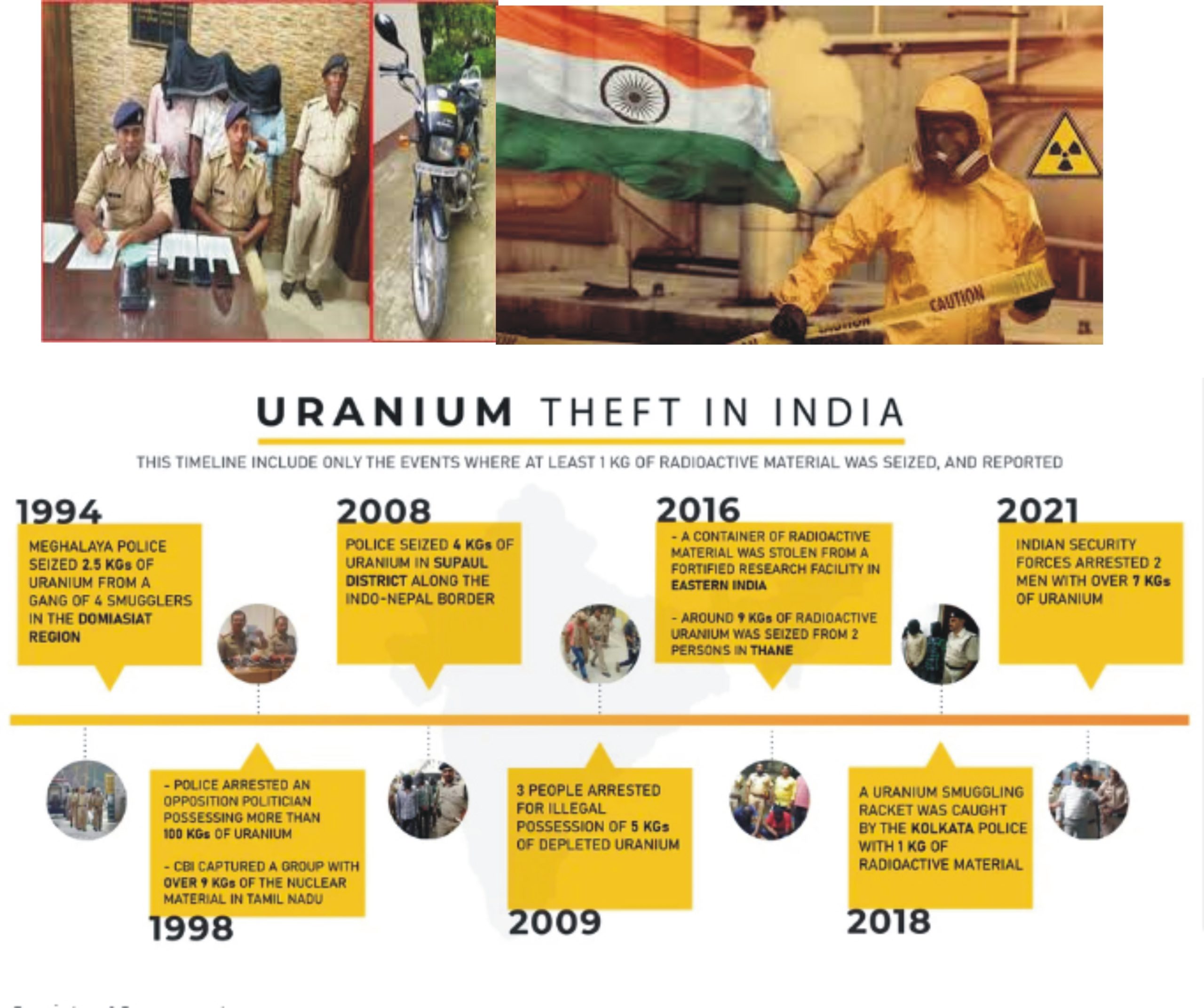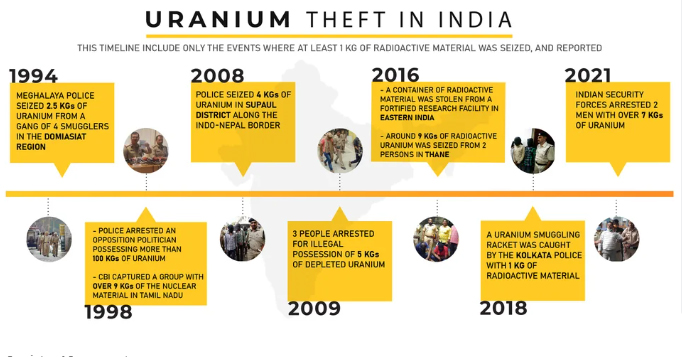India’s nuclear safety under scrutiny after Californium seizure in Bihar
 Gopalganj: In yet another alarming incident exposing India’s laxity in handling radioactive materials, police in Bihar arrested three individuals in Gopalganj district, seizing 50 grams of the highly dangerous and expensive radioactive substance ‘Californium.’
Gopalganj: In yet another alarming incident exposing India’s laxity in handling radioactive materials, police in Bihar arrested three individuals in Gopalganj district, seizing 50 grams of the highly dangerous and expensive radioactive substance ‘Californium.’
According to Kashmir Media Service, this substance, essential for starting nuclear reactors, optimizing coal power plants, cancer treatment, and oil drilling, is valued at crores, making its illicit possession deeply concerning.
The arrests took place in the Balthari area under Kuchaikot Police station in Gopalganj district, following a tip-off. Along with the Californium, four mobile phones were also recovered. The Gopalganj Police have notified the Department of Atomic Energy (DAE) and summoned forensic experts to examine the radioactive material. However, this incident further highlights India’s alarming failure to prevent the illegal trade and mishandling of hazardous substances.
While the police have registered a case against the accused, the broader implications are deeply troubling. India’s lax regulatory environment continues to expose dangerous materials to illicit trade, casting serious doubts on New Delhi’s ability to secure and manage radioactive substances responsibly.
As India faces repeated breaches in radioactive safety, this incident should serve as a wake-up call to the international community. New Delhi’s inability to effectively regulate and protect critical materials is not only endangering its citizens but also posing a significant threat to global safety. India’s reputation as a responsible nuclear state is increasingly at risk, and the potential consequences of mishandling radioactive substances are dire.
Furthermore, recurring thefts of nuclear materials, including enriched uranium and critical equipment, have raised serious concerns about the security of India’s nuclear arsenal and its command and control systems. The recent seizure of radioactive material in Bihar, along with a previous theft from the Daba nuclear facility in Mumbai, calls into question the silence of the International Atomic Energy Agency (IAEA) and Western nations. These incidents underscore the growing fears regarding India’s capacity to safeguard its nuclear assets effectively, further eroding confidence in its nuclear security framework.








